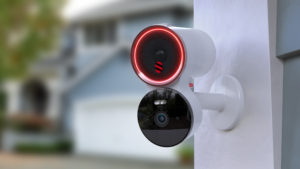5 Reasons You Need a Home Automation System
5 Reasons You Need a Home Automation System
There are several benefits to installing a home automation system. Home automation will streamline all your technology into a single app, and you’ll be able to control multiple devices and rooms in your home with voice commands.
You’ll also have a much cleaner home with fewer batteries and other resources.
Cost of a home automation system
The cost of a home automation system may vary considerably depending on the features it includes. The price may be based on the size of your home, a package system, or a custom one.
It also depends on the number of devices and appliances that are going to be controlled by your system. Generally, a fully automated smart home system will cost around $2,000 to $6,000, and you may pay much more for more advanced techniques.
However, you can also automate smaller portions of your home for less money.
Smart home wiring systems can allow you to control different functions of your living space.
These can range from smart lights and thermostats to entertainment systems and audiovisual communications. They may also control security systems and assist the elderly and disabled.
Cost of a single-task automation system
There are many benefits of home automation. For example, you can schedule different events, such as turning off the lights when you leave the house or turning on the pool cover when you get home.
This enables you to cut back on the cost of your energy needs. You can also program your system to shut down devices when they are not needed.
The price of a single-task home automation system will vary widely depending on the features and functionality.
The hardware used in the system may also affect the cost. For instance, some switches can cost more than others, and some home automation companies will charge for installation and labor.
Cost of a fully integrated home automation system
The cost of a fully integrated home automation system can range from $2,000 to over $100K, depending on the elements you want to automate and how you want to control them.
A typical home automation system comprises four components: a transceiver, a software program, triggers, and a user interface (UX). A user interface can be a digital screen, tablet, smartphone, or PC.
Choosing a fully integrated home automation system is a complex process. It requires extensive research and consideration of the specific needs of a household.
You should consider the present conditions of your family and those that you may have in the future. Choosing a system that can scale as your needs change is essential.
To achieve the best results, you should consult with an experienced integrator. They will take the time to understand your lifestyle and work with your contractor, architect, and tradespeople to achieve a successful integration.
Savings
Home automation is a great way to save money. It can help you automate tasks around the house, and it can be done with the voice of a human or by programming it to run at specific times.
Home automation has numerous benefits, and you can save thousands of dollars.
For instance, home automation systems can help you save money on utility bills.
All you need to do is deactivate one lamp before leaving home, as home automation systems have the capacity to turn the lights off automatically. You can also prevent forgetting to turn off the lights before leaving, since these systems turn them on and off as needed.
A home automation system is able to reduce the energy intake of electrical appliances. Many smart appliances are available on the market that will shut off on their own after a specific time.
Others feature motion sensors that can turn them on and off. In addition to these, some appliances have remote controls. Wi-Fi-enabled smart outlets can also be used to control devices.
Convenience
With the convenience of home automation, you can control your appliances remotely. You can also check on your home while you are out of town.
A home automation system can also control your lights at any moment. It can also lock and unlock your door for you.
This is another excellent way of keeping your home safe and sound.
Smart home systems can also be connected to portable devices to provide updates and notifications on your home.
Some not only notify you when someone enters your property but also control the temperature, lighting, and appliances. Some of these systems can control energy costs as well.
The Bottom Line
In conclusion, home automation systems can be a great way to automate tasks around your home.
They can make life easier by providing features like voice control and motion sensing.
Additionally, they can help with safety by monitoring activity in your home and sending alerts if something goes wrong.
But you need professional assistance and installers for an efficient home automation system. Contact AZ CCTV for entrusted home automation system services.





